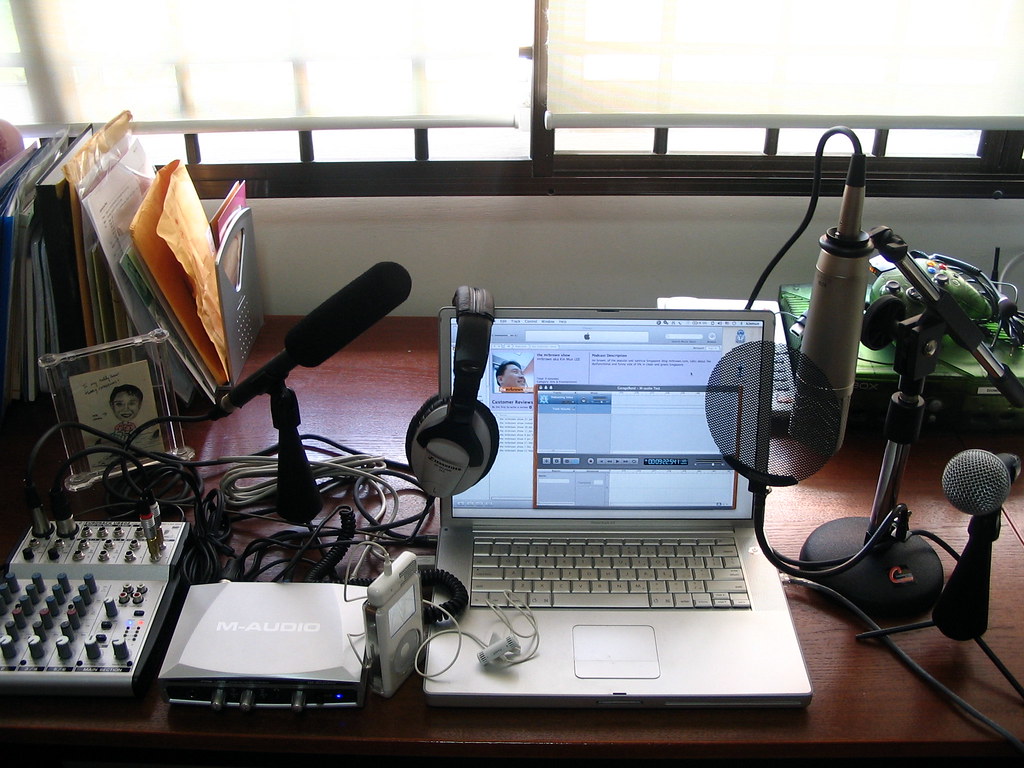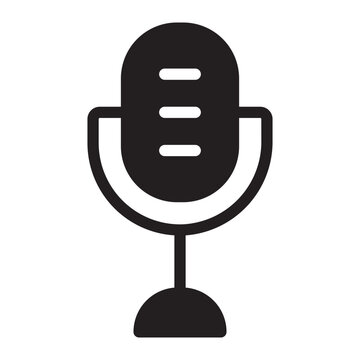Have you ever found yourself listening to a podcast and thinking, “I could do that”? With the rise of podcasts, more and more people are jumping on the bandwagon to start their own shows. But where do you begin? Well, before you even start brainstorming ideas for your first episode, you need to have the right tools for the job. In this comprehensive guide for beginners, we’ll take a deep dive into the world of podcast recording tools. From microphones to software and everything in between, we’ll explore all the options so you can make an informed decision on which tools are best suited for your show. So let’s get started and equip ourselves with the knowledge needed to produce professional-quality podcasts!

Introduction: The Importance of Choosing the Right Podcast Recording Tools
Starting a podcast can be an exciting venture, but choosing the right podcast recording tools is crucial to its success. With so many options available on the market, it can be overwhelming for beginners to know where to start. The first step in selecting your tools should involve considering what kind of content you will be producing and how you plan on distributing it. Your primary goal should be to achieve high-quality audio that captures your voice clearly without any background noise interference. Investing in quality microphones and audio interfaces are essential for achieving this outcome. Headphones also play a significant role in ensuring accurate sound monitoring during recordings and editing sessions. Keep in mind, choosing the right software is equally important as hardware selection when creating professional-sounding podcasts.
Essential Podcast Recording Tools for Beginners: Microphones, Headphones, and Audio Interfaces
Microphones, headphones, and audio interfaces are the essential podcast recording tools for beginners. A good microphone is crucial for capturing high-quality audio, and there are several types to choose from, including dynamic, condenser, and USB microphones. Dynamic microphones are great for recording in noisy environments, while condenser microphones are more sensitive and ideal for capturing vocals. USB microphones are easy to use and plug directly into your computer.
Headphones are also important for monitoring your audio while recording. Closed-back headphones provide better isolation from outside noise, while open-back headphones offer a more natural sound.
An audio interface is necessary for connecting your microphone and headphones to your computer. It converts analog signals into digital signals that can be recorded on your computer. There are many options available, from basic two-channel interfaces to more advanced models with multiple inputs and outputs.
Investing in high-quality microphones, headphones, and audio interfaces can make a significant difference in the quality of your podcast recordings.

Software Options for Podcast Recording: Editing, Mixing, and Mastering
In addition to hardware, software is also an essential part of podcast recording. There are several options available for editing, mixing, and mastering your podcast. One popular choice is Audacity, a free and open-source software that offers basic editing tools and effects. For more advanced features, Adobe Audition is a professional-grade software that allows for multi-track recording and mixing.
Another option is Hindenburg Journalist, which is specifically designed for audio storytelling and includes features such as automatic leveling and noise reduction. GarageBand is a great choice for Mac users as it comes pre-installed on all Apple devices and offers easy-to-use editing tools.
When choosing your software, consider your level of experience and the complexity of your podcast. It’s important to choose a software that you feel comfortable using and that can handle the demands of your podcast. Don’t be afraid to try out different options until you find the one that works best for you.
Advanced Podcast Recording Tools: Soundproofing, Pop Filters, and Shock Mounts
The Importance of Soundproofing: Tips and Techniques for a Professional Podcast Recording
Soundproofing is crucial for achieving a professional sound quality in your podcast recordings. Background noise can be distracting and take away from the overall listening experience. There are several tips and techniques you can use to soundproof your recording space, such as using acoustic foam panels, thick curtains, or even building a DIY vocal booth. It’s also important to consider the placement of your microphone and to avoid recording in areas with high levels of ambient noise. By investing in proper soundproofing materials and techniques, you can ensure that your podcast recordings are clear and free from unwanted background noise.
How Pop Filters Enhance Audio Clarity: An In-Depth Look at This Essential Tool
Pop filters are an essential tool for podcast recording as they help to reduce unwanted sounds caused by plosives or popping sounds. These sounds are created when air hits the microphone during pronunciation of certain letters such as “p” and “b”. Pop filters are designed to diffuse the air before it reaches the microphone, resulting in enhanced audio clarity. They also help to protect the microphone from saliva and moisture that can cause damage over time. When choosing a pop filter, consider the material, size, and compatibility with your microphone. A good quality pop filter can make a significant difference in the overall sound quality of your podcast recordings.
Shock Mounts 101: The Ultimate Guide to Reducing Vibrations in Your Recordings
Shock mounts are an essential tool for any podcaster looking to improve the quality of their recordings. They work by reducing vibrations caused by handling or movement of the microphone, resulting in a cleaner and more professional sound. When choosing a shock mount, it’s important to consider compatibility with your microphone and stand, as well as the weight and size of your mic. Look for models with adjustable angles and easy-to-use locking mechanisms. Investing in a high-quality shock mount can make a significant difference in the overall sound of your podcast recordings, making it a worthwhile addition to your podcast recording tools.
Advanced Tools for High-Quality Podcasts: Exploring the Benefits of Sound Dampening Panels, Reflexion Filters, and More
When it comes to creating high-quality podcasts, advanced tools can make a big difference. Sound dampening panels and reflexion filters are two great options for controlling the acoustics of your recording space. Sound dampening panels absorb sound waves, reducing echoes and improving audio clarity. Reflexion filters are shields that surround your microphone, preventing unwanted noise from bouncing back into the mic. Other advanced tools include pop filters, which reduce popping sounds when speaking certain words or letters like “p” or “s”, and shock mounts which isolate the microphone from vibrations in the environment. Investing in these advanced podcast recording tools can elevate the quality of your recordings significantly.

Comparing Popular Podcast Recording Tools: Pros and Cons of Different Brands and Models
When it comes to choosing podcast recording tools, there are various brands and models available in the market. Blue Yeti is a popular choice for beginners as it’s easy to use and provides high-quality sound. Shure SM7B, on the other hand, is preferred by professionals due to its exceptional audio quality.
For those looking for an all-in-one solution, Zoom H6 is a portable recorder that features interchangeable microphone capsules that cater to different recording situations. For software options, both Audacity (free) and Adobe Audition (subscription-based) provide excellent editing options.
It’s important to note that some podcast recording accessories may also be necessary depending on your setup. Noise-cancelling headphones like Audio-Technica ATH-M50x can help minimize background noise while shock mounts like Rode PSA1 can reduce vibrations from boom arms.
Ultimately, the best podcast recording tool will depend on your specific needs and budget. Consider researching different brands’ strengths and weaknesses before making a final decision.
Conclusion: Tips for Choosing the Best Podcast Recording Tools for Your Needs
When choosing the best podcast recording tools for your needs, it’s important to consider your budget, the quality of sound you want to achieve, and the level of convenience you require. Researching different brands and models can help you make an informed decision. Look for reviews from other podcasters and consider factors such as durability, ease of use, and compatibility with your existing equipment. Don’t be afraid to invest in quality equipment, as it can make a significant difference in the overall sound of your podcast. Additionally, consider taking advantage of free trials or demos before making a purchase to ensure that the tool meets your needs. Remember that while having top-of-the-line equipment is great, it’s ultimately your content that will keep listeners coming back for more.
In conclusion, choosing the right podcast recording tools is crucial for creating high-quality content that engages your audience. As a beginner, investing in essential tools like microphones, headphones, and audio interfaces can go a long way in improving the overall sound quality of your podcast. However, as you gain more experience and want to take your recordings to the next level, advanced tools like soundproofing, pop filters, and shock mounts can help eliminate unwanted noise and improve clarity. When it comes to software options for editing, mixing, and mastering your podcast recordings, there are many great options available on the market. Ultimately, the best podcast recording tools for you will depend on your specific needs and budget. By comparing popular brands and models and taking into account factors like ease of use and compatibility with your existing equipment, you can make an informed decision that will help you produce top-notch podcasts that keep your listeners coming back for more.
Common Questions
Who should use podcast recording tools?
Anyone who wants to create high-quality audio content.
What are podcast recording tools?
Software or hardware used to record and edit audio.
How do podcast recording tools work?
They capture and process audio, allowing for editing.
What if I’m not tech-savvy?
Many tools are user-friendly and offer tutorials.
How much do podcast recording tools cost?
Prices vary from free to hundreds of dollars.
What’s the best podcast recording tool?
Depends on your needs, but Audacity and GarageBand are popular.
